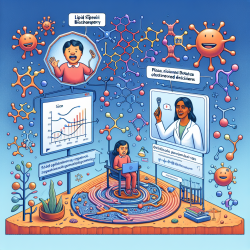In the evolving field of speech-language pathology, staying abreast of the latest research and methodologies is crucial for effective practice. The study of clinical phonetics and linguistics offers a rich reservoir of knowledge that can significantly enhance the skills of practitioners. This blog post delves into how the outcomes of research in these areas can be implemented to improve therapeutic techniques and encourages further exploration into this invaluable resource.
Understanding the Fundamentals
The foundational knowledge in articulatory and acoustic phonetics, as well as phonology, is essential for comprehending the variety of speech differences among individuals. It equips practitioners with the skills to accurately assess and address a wide range of communication disorders. By integrating the theoretical understanding and practical application of phonetics and phonology, therapists can develop more targeted and effective intervention strategies.
Transcription Skills
One of the key competencies for speech-language pathologists is the ability to transcribe speech accurately. This skill is critical for diagnosing speech sound disorders, understanding phonological patterns, and tracking changes over time. The research emphasizes the importance of extensive practice in transcription, highlighting the need for resources that offer both normal and disordered speech samples for training purposes.
Addressing Diverse Needs
Research in clinical phonetics and linguistics also sheds light on the necessity of tailoring intervention to the individual needs of clients. It underscores the diversity of speech patterns across different languages and dialects, advocating for a more inclusive approach that considers the linguistic background of each client. This is particularly important in multilingual settings, where practitioners must be aware of the phonetic and phonological characteristics of various languages.
Advancing Clinical Practice
Applying research findings to clinical practice involves more than just understanding the theory; it requires a commitment to ongoing learning and adaptation. Here are some ways in which practitioners can incorporate research outcomes into their work:
- Continuing Education: Engage in professional development opportunities that focus on the latest research in phonetics and linguistics. This could include attending workshops, webinars, and conferences.
- Collaboration: Work with colleagues and researchers to stay informed about current studies and explore how their findings can be applied in therapy sessions.
- Resource Development: Create or utilize existing resources that are based on research findings, such as assessment tools and intervention materials that incorporate phonetic and phonological analysis.
- Individualized Therapy Plans: Use the insights gained from research to design therapy plans that are tailored to the unique linguistic profile of each client, taking into consideration their native language, dialect, and any phonological disorders.
Encouraging Further Research
While the application of current research findings is crucial, there is also a need for practitioners to contribute to the body of knowledge in clinical phonetics and linguistics. This can be achieved through:
- Conducting independent research projects that explore unaddressed areas or test new therapeutic approaches.
- Participating in collaborative research initiatives with academic institutions or other organizations.
- Sharing clinical observations and outcomes that can inform future research and practice.
The integration of research findings from clinical phonetics and linguistics into speech-language pathology practice not only enhances the quality of care provided to clients but also contributes to the professional growth of practitioners. By embracing a research-informed approach, therapists can ensure that their interventions are grounded in the latest scientific evidence, leading to more effective and efficient therapy outcomes.
To read the original research paper, please follow this link: Clinical Phonetics and Linguistics (1997).










